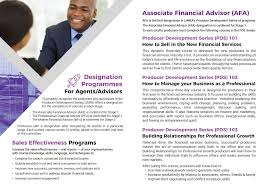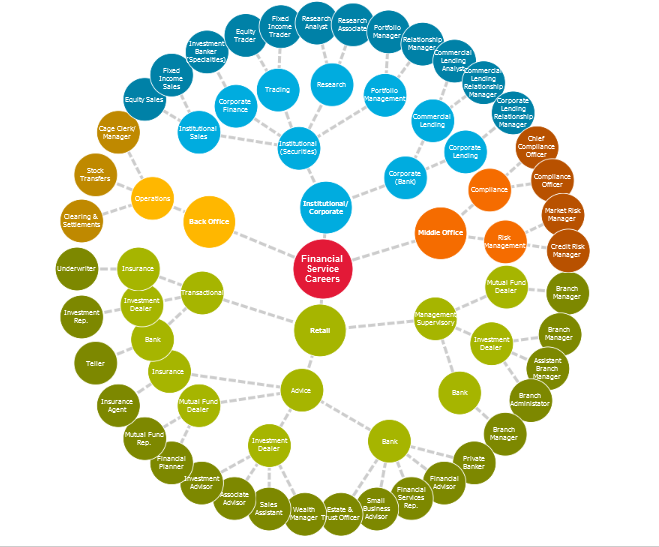
A holding company can be described as a corporation that does no production of its own goods and services but is instead a corporate group. Its primary purpose is to serve as a holding company for many companies. Some of these companies may be grouped together in a single holding company, while others may have separate subsidiaries. In this article we will discuss the advantages and disadvantages of forming a holding company, and the various forms available.
Benefits to starting a holding business
You might consider establishing a holding company if you want to protect your investments. Although this type of company is fairly simple to set up, it will require significant capital support. Holding companies typically purchase large blocks of shares, which makes them a sound business model for experienced investors. These are just a few benefits to starting a company. These companies can be a good option for small-business owners who want to limit liability and protect assets.
Holding companies can lower the cost of operating capital for subsidiaries because they are protected from the risks associated with other businesses. Bakery won't have any legal responsibility for collecting against its subsidiaries if it goes bankrupt. Furthermore, subsidiaries have the option to take advantage downstream guarantees to get lower-interest loans. The risk of default for holding companies is reduced significantly by the ability to sell shares of failing subsidiaries. This is advantageous for the operating companies as it reduces their liability.

Disadvantages of starting a holding company
The advantages of starting your own holding company far outweigh any disadvantages. However, there are still some issues. A holding company is able to get better financing terms because it pools its resources. A holding company can manage many more companies using less capital. A holding company can easily take control of a company by purchasing the majority of its stock through an LLC. This makes it the largest shareholder.
It's not easy to set up a company holding. First, decide what type entity your holding corporation will be. It will be a corporation or an LLC? Or a limited liability company. Once you have determined the type of business entity, you'll need to decide on its tax structure. But holding companies must be independent from other businesses. For example, a limited liability company should not be a holding company that conducts its own business.
Tax implications for starting a holding business
The tax implications of starting a holding company vary depending on how the organization is set up. Businesses with one owner are treated as sole proprietors and need not file with the IRS. However, they must report all their profits on their tax returns. Similarly, a holding company with two owners will be treated like a partnership and each partner is responsible for paying taxes on their portion of the returns.
Other considerations than the tax implications are administrative ease. Many lenders require that companies operate through holding corporations to reduce the risk of compliance and enforcement. A company that is established solely to tax purposes may not be able to receive the tax benefits they are intended. Before you make any final decisions, be sure to thoroughly consider the benefits and drawbacks associated with establishing a holding corporation.

Holding companies in different forms
There are many kinds of holding companies. A holding company has the main purpose of controlling another company. Its owners generally own most of the shares of the companies that it controls. You must sign a contract to authorize the formation of a holding company. In this instance, you will need to seek legal counsel. The following examples illustrate the different forms of holding corporations. Let's start by looking at the most common.
Pure holding companies are the first type. This type is used to hold stock in another business. It does NOT run its own businesses. Another type is a mixed-holding company. This allows it to control other companies while also operating its own businesses. A holding-operating company is often called a conglomerate. The name of the company reflects its ownership of a number other businesses. These entities are all classified as holding companies.
FAQ
How long does a consultant take?
The amount of time needed depends on your industry and background. Most people start their career with only a few months to find work.
Some consultants work for years to perfect their skills, before being hired.
Are you a consultant?
Consulting is not only an entry-level profession for those looking to make fast money, but it's also an excellent way to acquire valuable skills that you can apply throughout your career.
Consulting offers many opportunities in project management as well as business development, strategy and training. You could find yourself working with small start-ups and large international corporations.
Consulting gives you the chance to grow and develop your skills. This could involve learning to manage and negotiate teams, write proposals or manage budgets.
How is consulting different from freelancing
Freelancers are self-employed individuals who offer their services to clients without employees of a company or agency. Hourly rates are usually charged based on the time they spend working on a client’s project. Consultants often work for companies or agencies that employ them. Their salaries are paid usually monthly or annually.
Consultants have less flexibility than freelancers because they can control their work hours, and set their own prices. Consultants, however, often have better benefits such as retirement plans, vacation days, and health insurance.
Why should you hire consultants?
There are many factors that could lead to you hiring consultants.
-
Your organization may have a specific project or problem that needs solving
-
You want to improve or learn new skills.
-
You would like to work with an expert in your field.
-
No one else is available to take on the task.
-
Feel overwhelmed by all the information available and don't know where you should start
-
You don't have the money to pay someone full time
A word of mouth referral is the best way you can find a competent consultant. Ask your friends and colleagues if they know of any trustworthy consultants. Ask someone you know who is a consultant for his/her recommendations.
If you're interested in using online directories, such as LinkedIn, you can use the "Search People” feature to find consultants near your location.
What skills are required for consulting?
An effective consultant must have strong interpersonal skills as well as analytical skills. This is essential because you will be working on projects that you don't know the details of. It is important to learn how to quickly solve problems and manage people.
Excellent communication skills are also essential. Most clients expect a reply within 24 hours. If they don't hear back from you, they assume you aren't interested. It's crucial to keep them informed and make sure they understand everything.
How much are consultants paid?
While some consultants may make over $100k per annum, most consultants earn between $25k and $50k. The average consultant salary is $39,000 This includes hourly as well as salaried consultants.
Salary depends upon experience, location, industry and type of contract (contractor/employee). It can also depend on whether the consultant has their own office or works remotely.
Statistics
- My 10 years of experience and 6-step program have helped over 20 clients boost their sales by an average of 33% in 6 months. (consultingsuccess.com)
- According to statistics from the ONS, the UK has around 300,000 consultants, of which around 63,000 professionals work as management consultants. (consultancy.uk)
- "From there, I told them my rates were going up 25%, this is the new hourly rate, and every single one of them said 'done, fine.' (nerdwallet.com)
- 67% of consultants start their consulting businesses after quitting their jobs, while 33% start while they're still at their jobs. (consultingsuccess.com)
- Over 50% of consultants get their first consulting client through a referral from their network. (consultingsuccess.com)
External Links
How To
How Do I Find A Good Consultant?
Understanding your needs is the first step to finding the right consultant. What do you need them to do for your website? Are you looking for them to help optimize your website to rank higher on search engines? Perhaps you simply need someone to tell you if your current host provider is having issues. Once you know what type of services you need, you should start looking at different companies. Many consultants claim that they can offer these services. But only a small percentage of them are able to deliver. How can you pick the right one? These are some things you should consider when choosing a consultant.
-
Get referrals. Referring to other consultants is the best way of choosing a consultant. Because you are likely to pay too much, you shouldn't hire someone who you have never heard of. However, you shouldn't work with someone with poor reputations. It's great if you get recommendations from people you trust. Even if you don’t have any referrals, you can still look online for reviews. Check for testimonials or case studies that show how clients have used your services.
-
Ask around. Many people are not aware of the benefits of hiring a consultant. They assume that their current situation is fine and they don’t need changes. However, this is usually untrue. Even if you're getting great results right now, chances are that you haven't been keeping up with new trends or technologies. Relying on outdated methods will prevent you from maximizing your potential for growth. It is always worthwhile to ask around for recommendations of good consultants.
-
Check their qualifications. No matter how small your project is, it's important to ensure that the consultant you choose has the necessary skills. Make sure that they're qualified to perform the tasks you need to be done and that they have sufficient expertise in the area.
-
Find out about the types of projects they specialize. While you might assume that everyone can handle everything, this isn't true. Some areas require specific types of training or education. A developer who is a specialist in Drupal would not be able to help you build a WordPress theme. The same goes for graphic design, programming languages, etc. Ask what projects they usually work on.
-
Be aware of their fees. We said that you don't need to pay too much for consulting services. You also don't want too much. Consultants come in many sizes and shapes. There are some that charge an hourly fee, while others may bill per job. You can save money by knowing upfront exactly what you will be paying.
-
Understand what they offer. Are they providing free consultations? Are they willing to give advice about how to set up your own system or provide other assistance? Is there a guarantee that your site will rank higher after working with them? You have the right to cancel at any time if you aren't satisfied with what was said during your consultation.
-
Ask if they offer discounts over multiple months or for years. Many consultants offer discounts for longer periods. You may not need to commit to a full year, but you may also take advantage of whatever deals they offer.